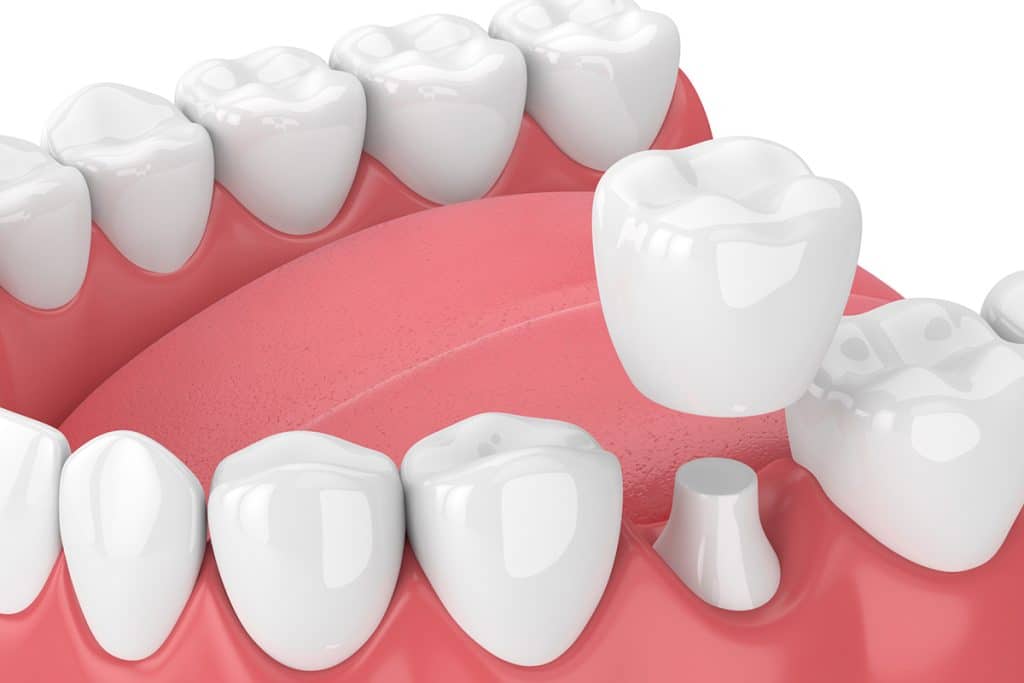The Importance of Dental Crowns for Teeth with Fillings

Cavities are a form of tooth decay. When plaque bacteria eat away at your tooth enamel it forms pits or holes in your teeth, called cavities. Cavities can be small or large, depending on how long they go without treatment. Treatment for cavities typically involves a filling, but for large cavities a filling may not be enough.
A dental crown is another option for treating a decayed tooth. Learn about dental crowns and their important role in tooth restoration.
What is a Dental Crown?
A dental crown is shaped like a tooth with a hollow center that is designed to fit over an existing tooth that has extensive damage or decay. The tooth is reduced in size to make room for the crown to fit over the top. This usually involves removal of the majority of the natural crown of the tooth, leaving a small portion to support the dental crown.
Dental crowns can be made of porcelain, metal alloy, gold alloy, or porcelain fused to metal. Metal crowns are stronger and last longer, but they don’t look as natural as porcelain. High quality porcelain, such as zirconia, is known for its strength and longevity.
Risks Associated With Large Fillings
A tooth with a large filling is at an increased risk of cracking or breaking. When a significant portion of the enamel is missing due to damage or decay, it weakens the structural integrity of the tooth. Composite material can fill in the holes, but may leave the tooth susceptible to damage. If a large crack develops or the tooth splits in half, it will need to be extracted and replaced.
Benefits of a Dental Crown
Choosing to have a tooth fitted with a crown has significant advantages over a large filling, such as:
- Lower risk of damage. A dental crown reduces the risk of future damage to the tooth because it provides better protection than a filling.
- Longer lasting restoration. A dental crown restoration lasts longer than a large filling that will likely need to be replaced with a crown later.
- No eating restrictions. Once a dental crown has had time to solidify, there are no eating restrictions. With a large filling you may have to be careful what you eat and how you chew to avoid damage.
- Less sensitivity. A tooth with a large filling can leave your tooth feeling sensitive to temperature changes, but a crown reduces or eliminates sensitivity.
Frequently Asked Questions About Dental Crowns
How long will a crown last?
The average lifespan of a dental crown is 10-15 years. But with excellent care and maintenance a crown can last for 20-30 years or for the rest of your life.
Can you get a crown in one day?
In some cases a crown can be placed on a tooth in a single appointment. It depends on the situation and the technology available at the dental office.
Should You Get a Filling or a Crown?
If you have a tooth that is in need of restoration, deciding between a filling or a crown should come down to your dentist’s recommendation. Hi-Fi Dental can assess your tooth and determine the best course of treatment for saving your tooth and protecting your smile.
Call 602-242-5445 or contact us today to learn more and schedule an appointment.
